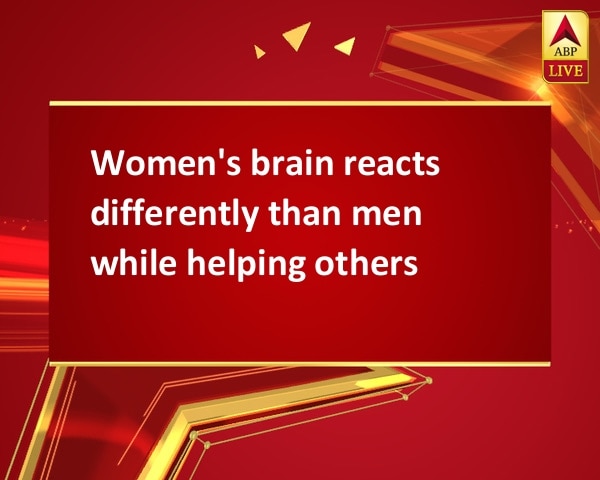
Women's brain reacts differently than men while helping others

Washington D.C [USA], October 16 (ANI): Women tend to be more altruistic and their brain reacts differently than men while helping others, a new study suggests.
Researchers found that the women's part of brain showed a greater response when it came to sharing money, while in men, the same structure showed more activity when they kept the cash for themselves.
"Women put more subjective value on prosocial behavior and men find selfish behavior more valuable," said Philippe Tobler, associate professor of neuroeconomics and social neuroscience at University of Zurich.
"However, it was unknown how this difference comes about at the level of the brain," Tobler continued. "But in both genders, the dopamine system encodes value."
By "encode," he means the activity in our brain changes in proportion to the value we give social experiences.
Tobler along with his colleagues focused on the "dopamine system" to search for answers why women and men are not equally selfish.
Dopamine plays a fundamental role in the brain's reward system which is released during moments of pleasure, yet it also helps us process our values.
This mental ability transpires within the brain machinery known as the striatum. Latin for "striped," the striatum is threaded with fibers that receive and transmit signals from the cerebral cortex, the thalamus and other brain regions.
A series of experiments was designed to test how dopamine might influence the behavior of men and women.
Fifty-six male and female participants were made to choose between sharing a financial reward with others or keeping the money for themselves.
A placebo was given before making decisions by the participants. The result showed that women acted less selfishly than men, choosing to share their money with others.
However, after receiving a drug called amisulpride which distrupted their dopamine systems, women acted more selfishly, while men became more generous. Amisulpride is an antipsychotic normally used to treat the symptoms of schizophrenia.
"Based on the opposing priorities of the genders, interfering with the dopamine system has opposing effects," Tobler stated.
The researchers used functional MRI in a second experiment to investigate changes in the brain while eight female and nine male participants made decisions.
The striatum in females showed more activity when they made a prosocial decision as compared with the male.
The study was published in Nature Human Behavior. (ANI)
This story has not been edited. It has been published as provided by ANI
Top Headline
Trending News

and tablets



























